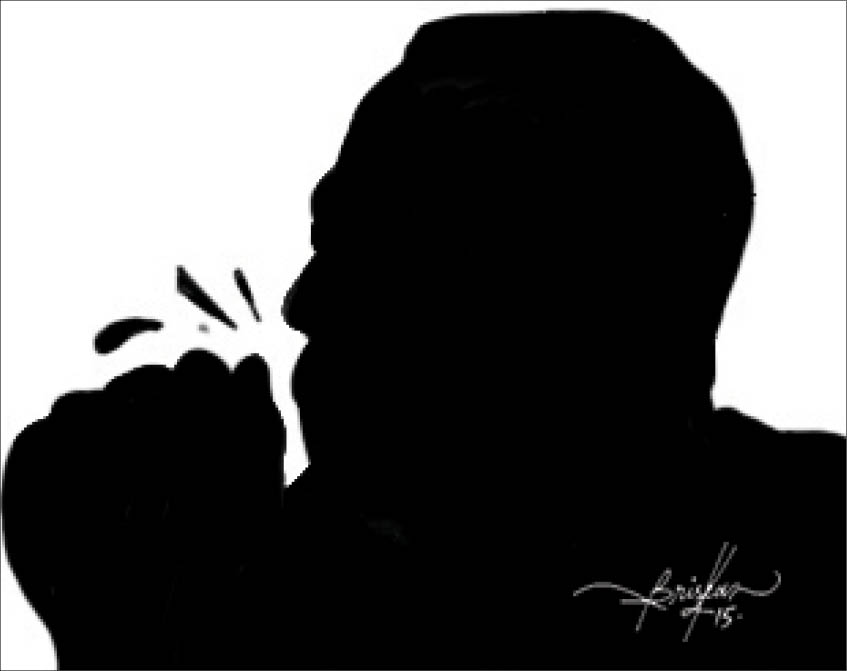Protecting your child from whooping cough
Mrs Laide became concerned when her two-month-old daughter began to suffer from a violent cough. After coughing, the baby takes high-pitch breaths that end with a ‘whoop’ sound. She was diagnosed with whooping cough at the hospital. COVID-19: Ekiti govt enforces face mask, arrests 100 offenders COVID-19: Regional courts deliver judgements virtually Whooping cough, medically […]

Mrs Laide became concerned when her two-month-old daughter began to suffer from a violent cough.
After coughing, the baby takes high-pitch breaths that end with a ‘whoop’ sound. She was diagnosed with whooping cough at the hospital.
- COVID-19: Ekiti govt enforces face mask, arrests 100 offenders
- COVID-19: Regional courts deliver judgements virtually
Whooping cough, medically known as pertussis, is a highly contagious respiratory tract infection caused by bacteria and marked by a severe hacking cough in many sufferers. Also known as “violent cough” and “the 100-day cough” by the Chinese, whooping cough is described as the most consistent and prominent feature of the illness.
The Centre for Diseases Control (CDC), said it is known for uncontrollable, violent coughing which often makes it hard to breathe. After cough fits, a person with pertussis often needs to take deep breaths, which result in the “whooping” sound.
It can affect people of all ages, but can be very serious, even deadly, for babies less than a year old.
According to Dr Kelechi Alozie, a medical doctor, whooping cough affects mostly children between ages three to four months and reduces among adolescents.
He said some of the signs and symptoms include runny nose, sneezing, a low-grade fever, fatigue, a mild cough, watery eyes, lacrimation (tears), cough and general body weakness and tiredness.
Dr Alozie also said the episodes of whooping cough may be triggered by noise, eating, or physical contact, adding that between attacks, the patient’s appearance is normal but increasing fatigue is evident.
“The frequency of episodes varies widely, from several per hour to 5–10 per day. Episodes are often worse at night and interfere with sleep. The effect on the patients is often characterised by weight loss as a result of the illness’s interference with eating.”
According to him, the ailment can be diagnosed clinically by a medical doctor through assessment of the clinical presentation but accurate diagnoses can be achieved by simple laboratory techniques such as culture of the nasopharyngeal secretions or by the Polymerase Chain Reaction Test. “Nasopharyngeal secretion culture remains the gold standard method of diagnosis.”
He said the cough, after zero to two weeks, a phase known as catarrhal phase evolves into another phase known as the paroxysmal phase when the whooping cough becomes more frequent and violent with repetitive bursts of 5–10 coughs at a go, vomiting is also frequent, with a mucous plug occasionally expelled at the end of an episode.
“The episode may end with an audible whoop where the ailment gets its name. At this point, other signs may include neck-vein distension, bulging eyes, tongue protrusion, and cyanosis (the lips and inside the mouth take on a bluish coloration.)”
Dr Kelechi said whooping cough was contagious when the child comes in contact with the causative organism which can be picked up in school, and in crowded vicinities with other kids among others.
He added that, simple immunisation, life style and personal hygiene were key factors that could protect children from pertussis bacterial infection.
“Every mother has the responsibility of taking their children for the appropriate vaccinations as indicated by the World Health Organisation (WHO) guidelines and prescribed by the hospital.
“The vaccine against Pertusis is the DPT vaccine given in three doses at the 2, 4 and 6th month of infancy, with a reinforcement dose at 15 to 18 months and a booster dose at 4 to 6 years. So, mothers that skipped vaccine for their children are not doing the children any good or themselves either.”
The medical expert urged parents and caregivers to keep children in clean environments and schools or pre-schools, which are not crowded. He said children should be given adequate fruits and vegetables or vitamin supplements to help bolster their immunity.
He said when diagnosed, an appropriate treatment regimen which consists of some antibiotics in divided doses are given for a period of seven days. But in the case where the child is allergic to any of the drugs, other drugs are prescribed by the doctor.
“However, do not self-medicate your child, all drugs given to the child for whooping cough must be as prescribed by the physician,” he said.
Dr Alozie added that young infants have the highest rates of complications and death from whooping cough; therefore, most infants (and older children with severe disease) should be hospitalized.
“A quiet environment may decrease the stimulation that can trigger episodes. Use of cough suppressants is not effective and play no role in the management of whooping cough.
“Every child with episodes or in respiratory distress should be hospitalized; do not wait until it becomes severe, because it could be dangerous,” he advised.
